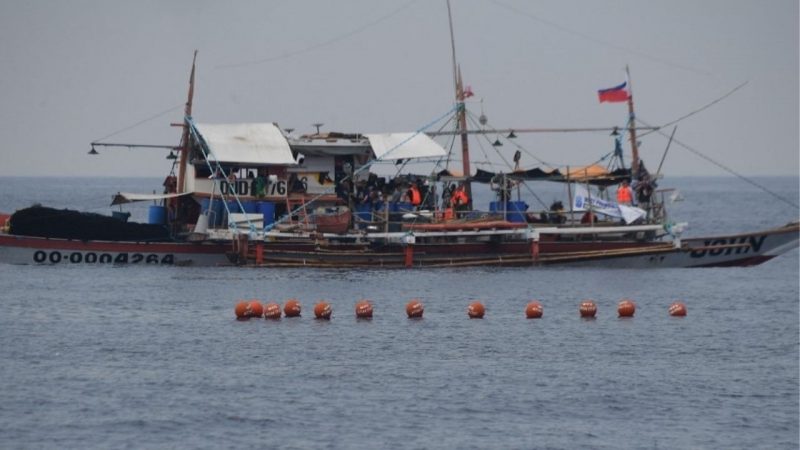MANILA — Recent developments in the South China Sea, particularly around the Julian Felipe (Whitsun) Reef in the West Philippine Sea, have sparked renewed concerns as China’s actions intersect with the Philippines’ exclusive economic zone (EEZ) and continental shelf.
Satellite imagery on May 9, 2024, revealed a gathering of 82 vessels from the Chinese Maritime Militia (CMM) at the reef, drawing attention from SeaLight, a project focused on monitoring maritime activities in the region.
Retired US Air Force Col. Ray Powell, director of SeaLight, highlighted the size and persistence of the Chinese fleet at Julian Felipe Reef, reminiscent of a similar incident three years prior, dubbed the “Whitsun Reef Incident,” which drew objections from the Philippines.
Despite China’s claim that the vessels were seeking shelter, Powell emphasized the continuous presence of CMM vessels over the years, suggesting a contradiction to China’s earlier assertions and raising concerns about their true intentions.
Speculations about the actual number of CMM vessels exceeding reported counts are supported by previous reports from the Philippine Coast Guard (PCG), indicating an increase in vessel numbers over time.
National Security Adviser Eduardo Año instructed the PCG to challenge and document the illegal presence of CMM vessels at Julian Felipe Reef. However, radio challenges went unanswered, signaling a disregard for international norms.
Julian Felipe Reef’s significance lies not only in its geographical location but also in its legal status as part of the Philippines’ territorial sea. Powell emphasized that the vessels stationed at the reef, though labeled as “fishing” vessels, are not engaged in fishing activities but serve as a floating outpost supported by Chinese subsidies, aimed at exerting effective control over the area.
China’s actions at Julian Felipe Reef align with a broader strategy of asserting control over disputed maritime territories without physical infrastructure. Powell warned that China’s vast maritime militia could overwhelm neighboring countries’ capacity to respond effectively, posing a significant challenge to regional stability and maritime security.
(el Amigo/MNM)







